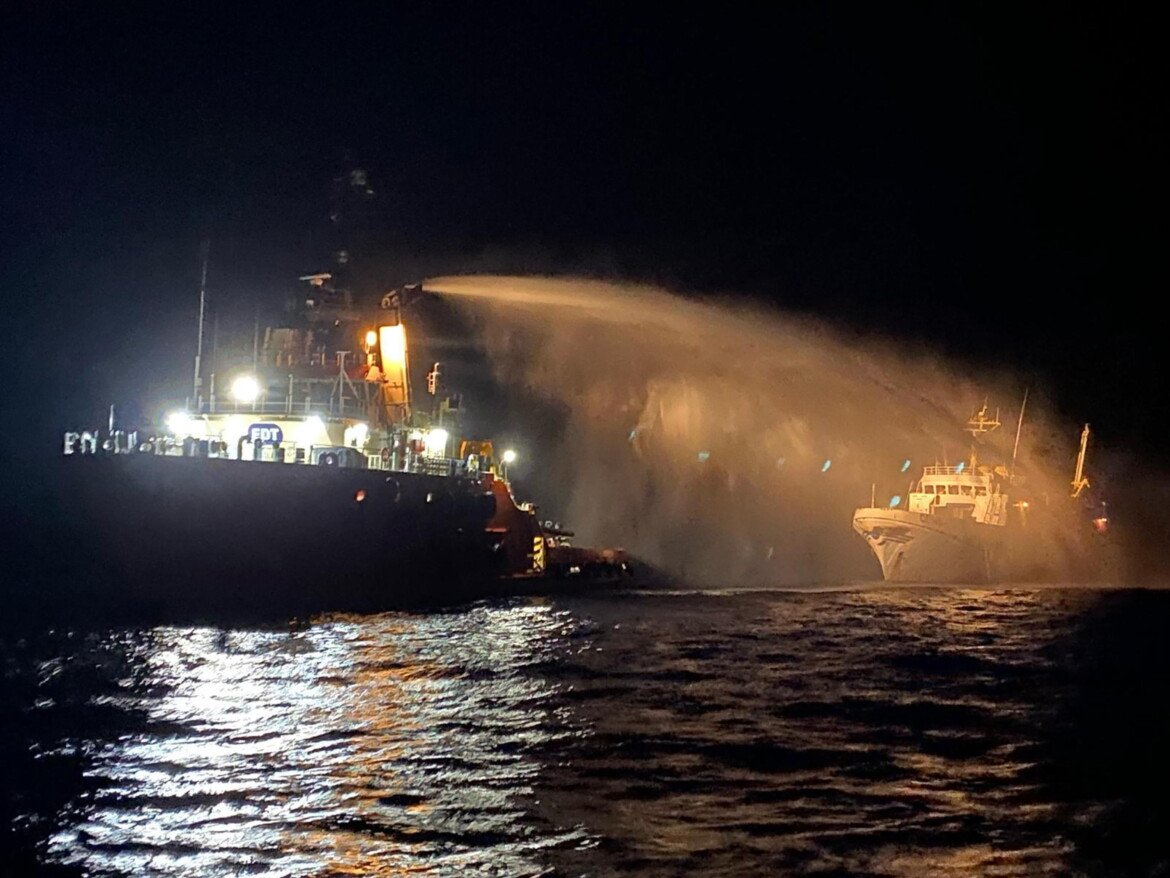Report
Why did armed drones attack a humanitarian relief vessel in international waters?
The activists are pointing the finger at Israel and its partners: who else would have an interest in crippling an unarmed aid ship bound for Gaza?

At 12:23 a.m. on Friday, May 2, two armed drones repeatedly struck the Conscience, a vessel of the Freedom Flotilla, as it was sailing in international waters. The first hit pierced the outer hull and the ship began to take on water; the next ones tore into the foredeck and the generator area, leaving the crew without power. Their radio stopped working and communications became difficult and patchy. A fire broke out soon after, and a ship from southern Cyprus together with a Maltese vessel reached the scene.
According to Thiago Ávila of the NGO, the Flotilla dispatched two support boats, yet the Maltese ships did not allow them to come near. By evening, the activists said they feared another strike and the vessel remained badly damaged, but the Maltese Coast Guard was blocking it and preventing it from reaching a safe harbor.
At the moment of the attack, the Conscience was carrying 30 relief workers from Turkey and Azerbaijan, along with food and medicines. An unarmed vessel, it was holding in place 13 nautical miles north-east of Malta, waiting for permission to dock so that more volunteers and further essential supplies could come aboard. The Freedom Flotilla Coalition, which has been organizing missions since 2008 to break Israel’s siege and reach the Gaza coast, had kept the Conscience’s itinerary a secret in order to avoid being stopped, as has happened several times before.
Dozens more volunteers, among them climate activist Greta Thunberg and the Italians Simone Zambrin and Chiara Di Silvestro, were to embark in Malta. However, the machinery of obstruction enjoys an international support system that wields bureaucracy as a pointed weapon. “All the missions have suffered delays caused by the maritime authorities,” Michele Borgia, who handles the NGO’s Italian communications, told us. “Ships are being inspected and reinspected for days.”
The activists are pointing the finger at Israel and its partners: who else would have an interest in crippling an unarmed aid ship bound for Gaza? There is no conclusive proof, but an Israeli Air Force C-130 Hercules did leave Tel Aviv on Thursday afternoon, flew low for several hours over the area where the Conscience was located, and returned seven hours later, after the attack had been carried out. Tel Aviv declined to comment.
Fifteen years ago, in May 2010, Israel boarded the Mavi Marmara, one of six Freedom Flotilla ships trying to break the Gaza naval blockade, and killed nine Turkish activists. President Erdogan – among the first to condemn the attack on Friday – expressed solidarity with the international group. However, it was Turkey that kept the Conscience in Istanbul for months, until the food rotted and some of the aid became unusable. This is one of the reasons why the vessel had to dock in Malta, where an agency was waiting to load in new humanitarian cargo. Then the agency unexpectedly withdrew from its previous commitment, and Malta refused the vessel entry into its territorial waters.
A 48-hour wait in international waters followed, and the reason behind it soon became clear: it bought time for governments to apply pressure so that the ship’s flag would be withdrawn. The Conscience sails under the flag of Palau. Exactly the same thing happened last year to another Flotilla mission: three ships with 5,000 tons of aid and hundreds of international observers were supposed to sail from Istanbul, but Turkey delayed permission until Guinea-Bissau announced it was revoking its flag.
Only once, in 2008, did a Flotilla vessel, the Dignity, succeed in reaching Gaza. On board was the late Italian activist Vittorio Arrigoni.
“We looked at the high risk of the mission,” Simone Zambrin told il manifesto, “but we decided to try to do what our own governments, complicit as they are, refuse to do. Is there any gesture more authentic than bringing food and medicines to people who need them? This is our non-violent resistance to an inhuman act.”
After two months of total blockade, even the international agencies in Gaza lack the means to help the population. The humanitarian response “is on the brink of total collapse,” the Red Cross warned. “If aid does not resume immediately, the ICRC will no longer have access to food, medicine, and essential goods needed to maintain its operations in Gaza,” reads their statement on Friday. Hospitals – including the ICRC’s field facilities – have run out of medicine.
Old shoes are being sold by the kilo as the only fuel to light a fire for cooking or keeping warm. More and more families are desperately pleading for help for their children who are wasting away from hunger and disease, reduced to skin and bone and too weak even to cry. Yet Israel keeps bombing houses and tents and is threatening to expand its military operations still further.
At least six people were killed on Saturday in Gaza City when Israel struck one of the few community kitchens still operating. In Beit Lahiya, Israeli forces bombed a house where relatives were keeping vigil over the body of a victim of an earlier strike; witnesses spoke of more than twelve dead, all members of the Al-Masri family.
Originally published at https://ilmanifesto.it/droni-contro-la-flotilla-che-portava-cibo-a-gaza on 2025-05-03
